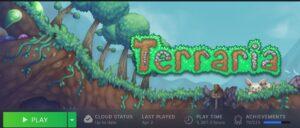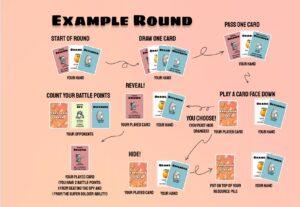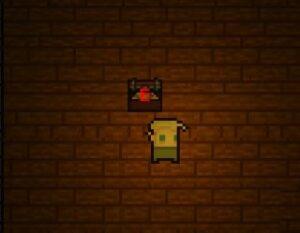CS247g Final Reflection
When I was a kid, all I played was video games. I had a burning passion for the genre. When I was in middle school, I pointed to my mom at an image of MIT, and told her I had chosen this school, so I could learn coding to one day become the greatest video game designer of all time. That dream got sidetracked quite a bit and I ended up starting my junior year of college burnt out after two lackluster summer software engineering internships.
I then had a friend, Umar, who I had met at Oxford introduce to me this class. Before this class, I knew when I had felt a good game. I had played the Indie game greats from Outer Wilds to Undertale to Hollow Knight to Super Metroid to Terraria to Fallout New Vegas and Xenoblade ( No joke, I have 5,000 hours in my steam account on Terraria).

I had no idea how these worlds were made, but I know how they made me felt. I sort of thought of Game Design as a movie director frantically trying to sew together a thousand moving parts into something beautiful right before the players eyes. I thought of play mostly through the lens of more difficult games like Dark Souls. I wanted to know the thought processes behind greatness, and this class delivered.
The class really drew me in from the start.
It was awesome for the first time in my Stanford experience, getting to really connect with other passionate gamers and people interested in getting into games. The first small games we made, like the monster battling, was very fun even though so little initial effort was put in, and I was drawn to the power of the magic circle. The theory readings on Narrativologists vs Ludologists also stuck with me, as I thought back to own experiences with games like earthbound or xenoblade where most of the game happened through cutscenes.
I initially experienced some issues into getting into a flow with working on a team. Especially as our P1 project threw us into a randomly selected team creating a random game design concept. Luckily, my team was full of hard working students and so we managed to make something excellent.

The simple introduction of a creepy soundtrack to our P2 Testable Core immediately scared every single player who set their hands on it. They were transported to the manor despite the limited graphics and design thrown together a couple of hours before the deadline, and players ran around in a frenzy simply because of a royalty free audio clip. This, and juicy week really revealed to me the power of art to affect players and put them into altered states, as well as the responsibility we as game designers have on making sure we steward that ability.

I didn’t realize how huge the power of onboarding was. The lecture on Plants Versus Zombies made it click. As I saw our (horror-ish) game playtested by a diverse audience of people who had little to no experience with the genre, it was exciting seeing them yelp, and say aha!, in all the same ways I did when I first started playing games. It made me super nostalgic and misty-eyed and it makes me want to commit to making my games easy to at least pick up and play.
I really grew in my ability to prototype my ideas, communicate them with others and collaborate to bring something into the world. I also felt good about the risks I took as I had little-to-no Unity experience when I started coding, and turned that into a full-fledged game. While I was happy being in a supportive role in P1, P2 gave me the opportunity to really see how hard I could work on a career that was a dream since childhood. There’s no cooler feeling than seeing a player struggle and overcome in a world you and a couple of others have spent countless hours trying to bring to life. To see them strategize with their friends or be brought to lows or highs based on concepts you invented.
In the future, I want to make more games with cool stories, and inventive mechanics. I feel I have the confidence to strike out on my own make things, and am grateful for this class to give me the opportunity to take risks in a safe environment.
Thank you so much!



